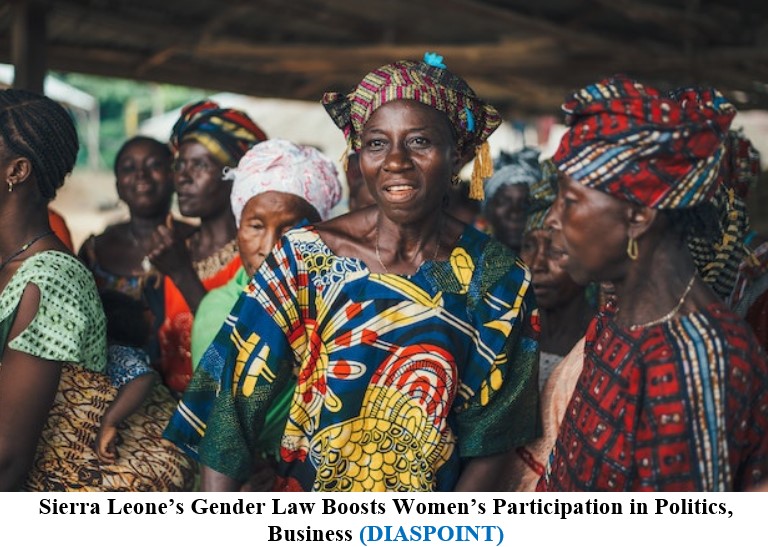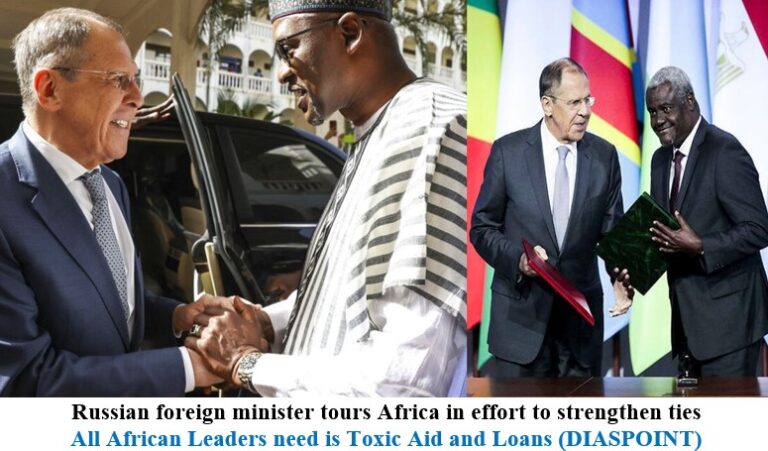Sierra Leone’s Gender Law Boosts Women’s Participation in Politics, Business
Sierra Leone’s new gender equality law will benefit women with political aspirations – as well as stimulate development, say analysts.
The country’s President, Julius Maada Bio, signed the new Gender Equality and Women Empowerment into law in January 2023. It has shaken the foundations of previously held ideologies that restricted females’ involvement in various aspects of the country’s life.
Reacting to the enactment of the law, Janet Bangoura, a 35-year-old administrative worker in the capital, Freetown, said: “A year ago, I only nursed the dream of ever becoming a politician because the playing field has never been equal for women. This has changed with the signing of the Gender Equality and Women Empowerment (GEWE Act 2022), which guarantees at least 30 percent of female participation in Parliament and at least 30 percent of all diplomatic appointments to be filled by women.”
In addition, the law stipulates that not less than 30 percent of all positions in Local Councils should be reserved for women, same with 30 percent of all jobs in the civil service and at least 30 percent of jobs in private institutions with 25 and more employees. It also extends maternal leave extended from 12 weeks to 14 weeks.
Bangoura sees this new law as “shaking the status quo because it has brought a change that women of my generation had not expected. Now, we do not have any excuse but to seek our dreams in the political field. I know things will not immediately change, but the foundation has been laid for those of us who want to break the political glass ceiling.”
It is not only the women who are happy that the country has achieved the “unthinkable”. With the coming into force by this law, Sierra Leoneans of all ages and sexes are glad their country has overtaken neighbouring countries in the West African region by taking the lead in giving equality to women. Though such a law has been talked about by the countries in the region, the head of the United Nations Women’s office in Sierra Leone, Setcheme Jeronime Mongbo, said the September 2022 data on women’s representation in English West Africa shows that Ghana has 14.8 percent of women in Parliament, Gambia, 11.6 percent, Liberia, 9.7 percent and Nigeria, 7,2 percent, adding that, “Sierra Leone is leading the way.”
Minister of Gender and Children’s Affairs, Manty Tarawalli welcomed the law, which she said has been late in coming but noted that it was better late than never. She attributed the lateness in enacting the law to the lack of political will that existed before. This changed with the current President’s role, adding that, “The climate wasn’t right in terms of women’s readiness and men not being accommodating for this sort of growth until now.”
Tarawalli said Sierra Leone was a “typical” African society. “We know the way things are, and to effect that sort of change that really needs a transformation and what shakes the status quo, it required time and understanding from both men and women for the change to happen.”
She said there were initial challenges in discussing the Bill. So, they had to cross massive hurdles to be able to change “the conversation from rights-based to economic growth, and it changed organically from our consultation,” adding that “those who were opposed became willing and ready to have the conversation.”







